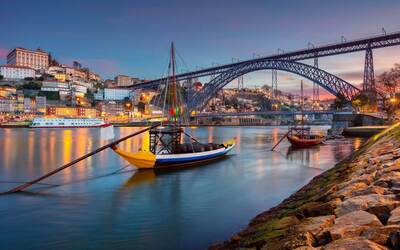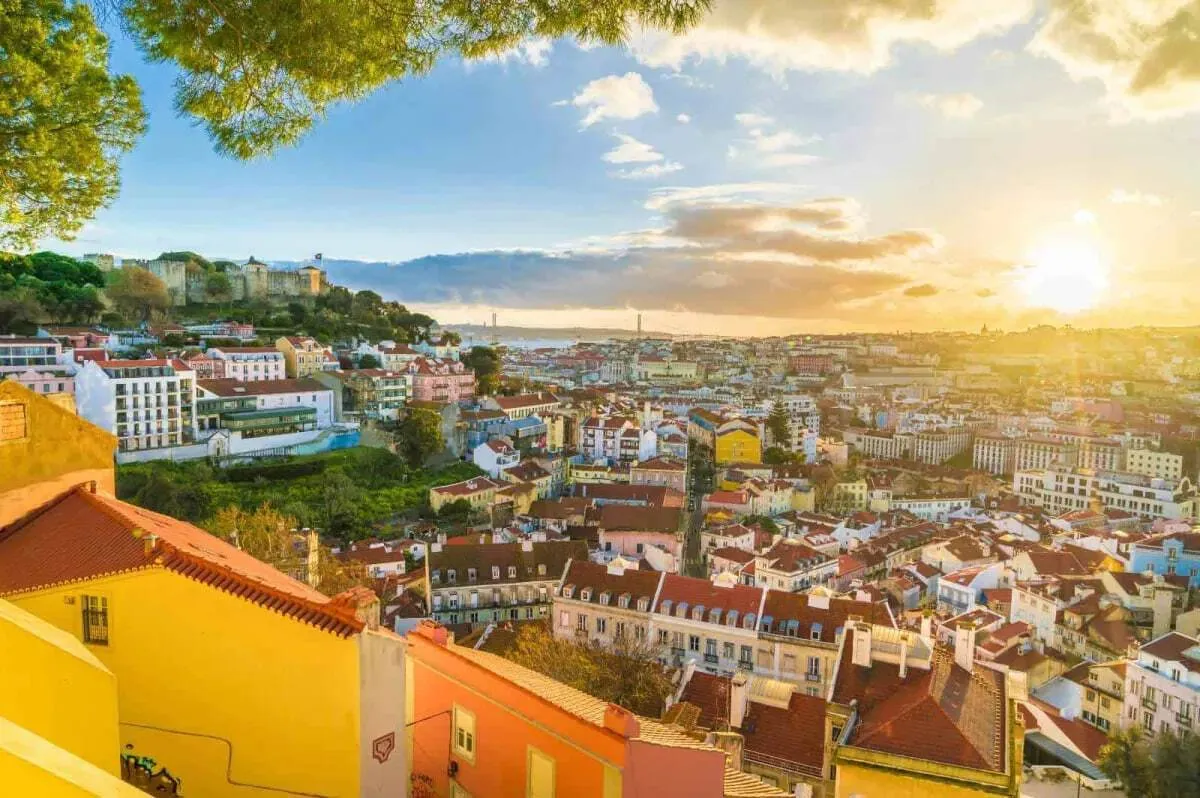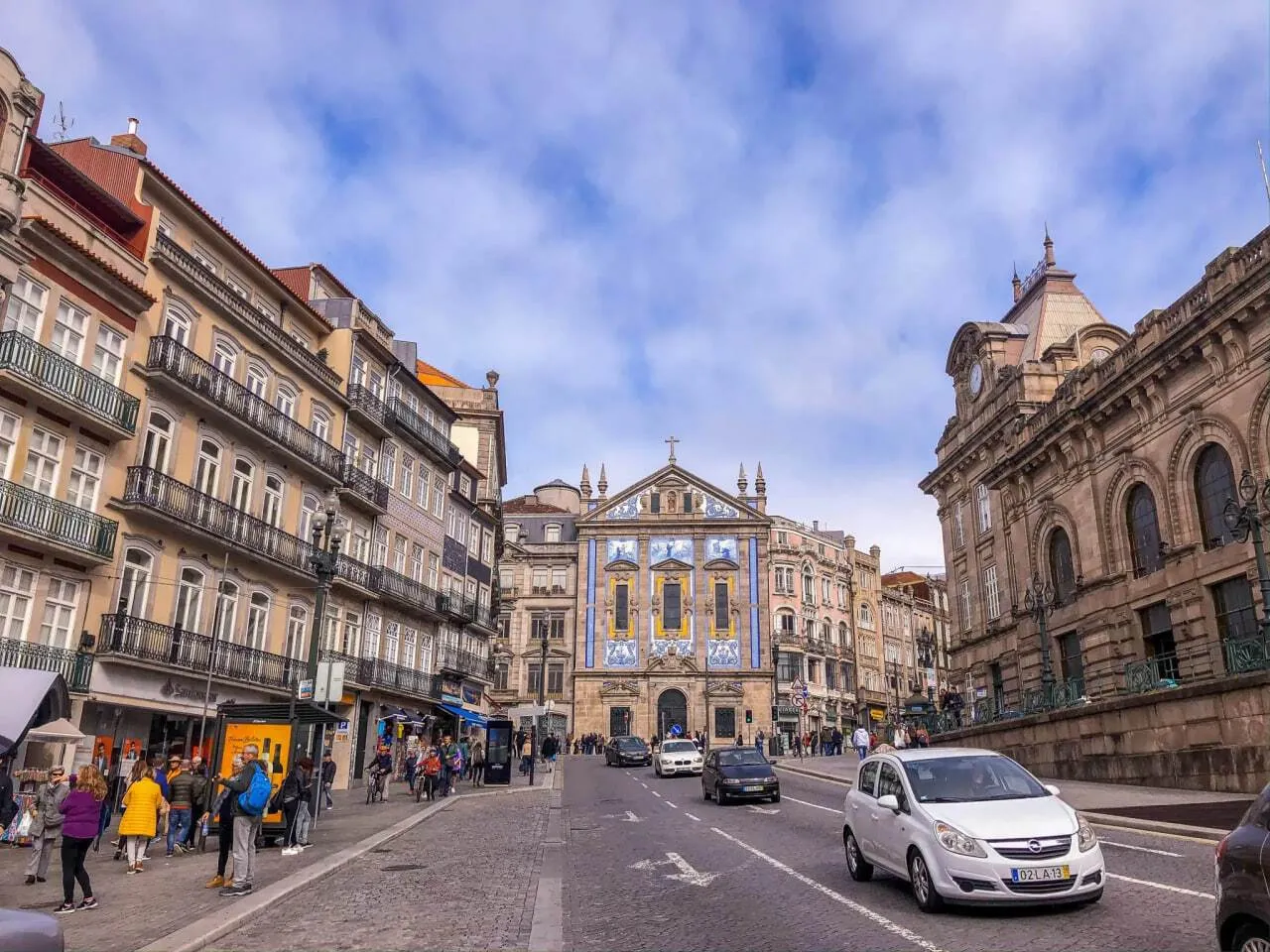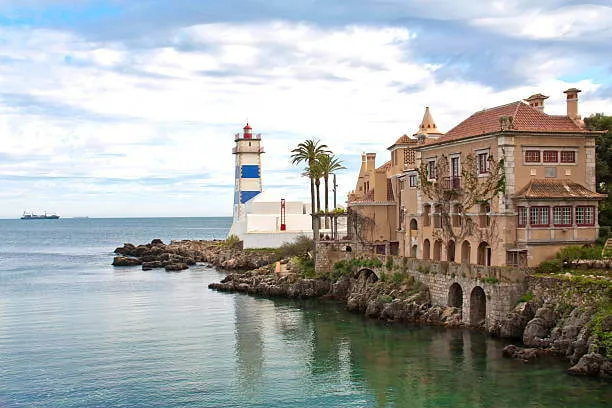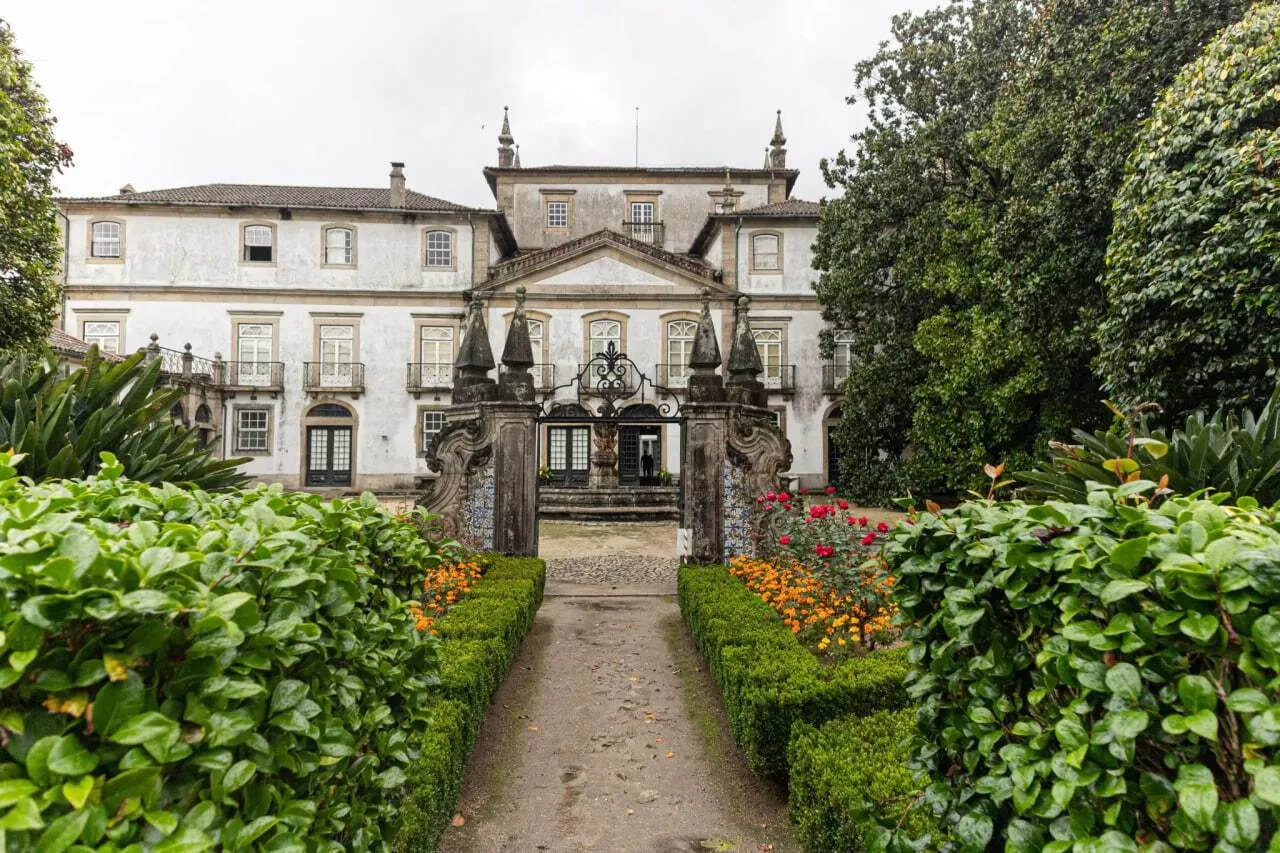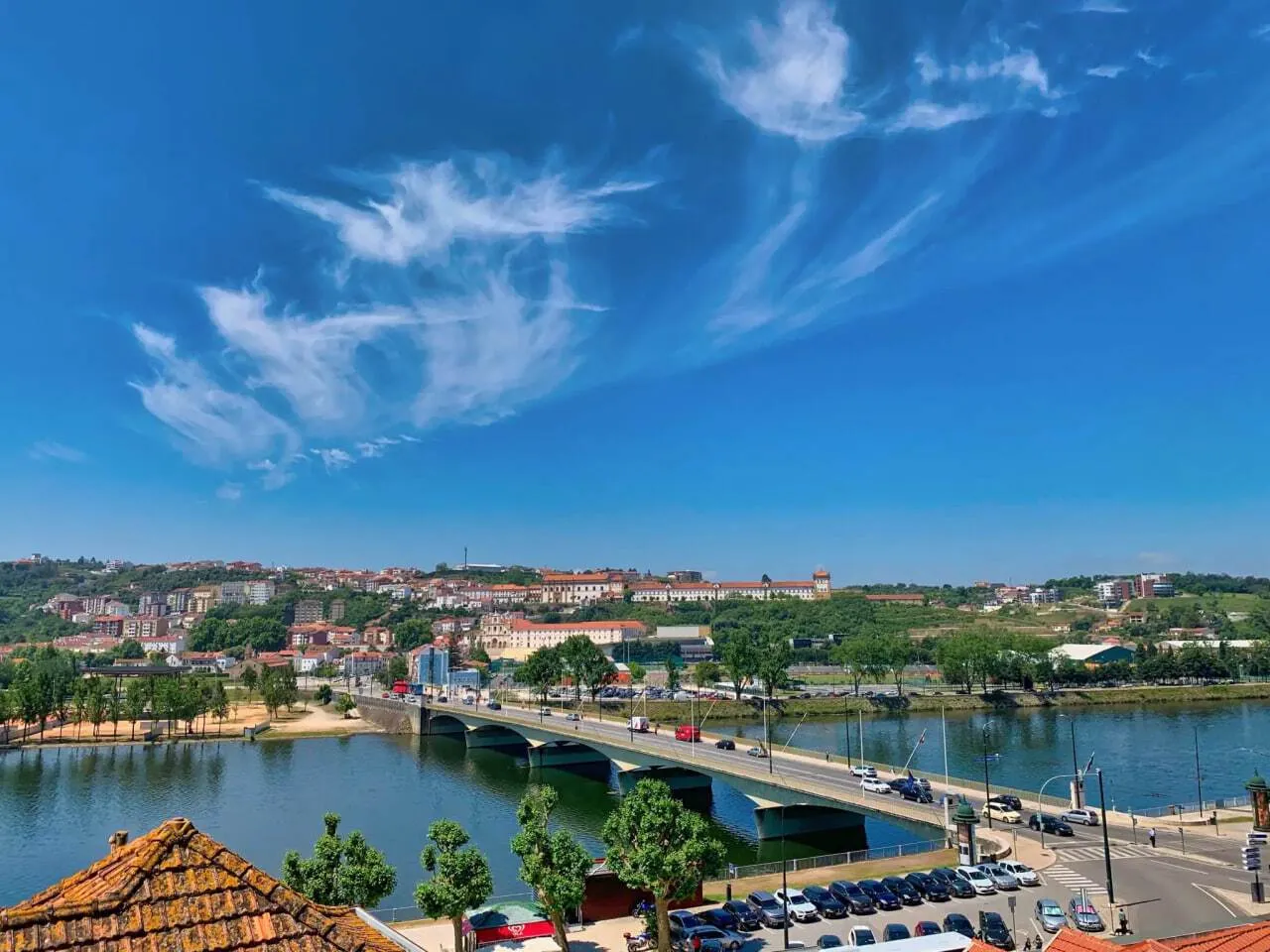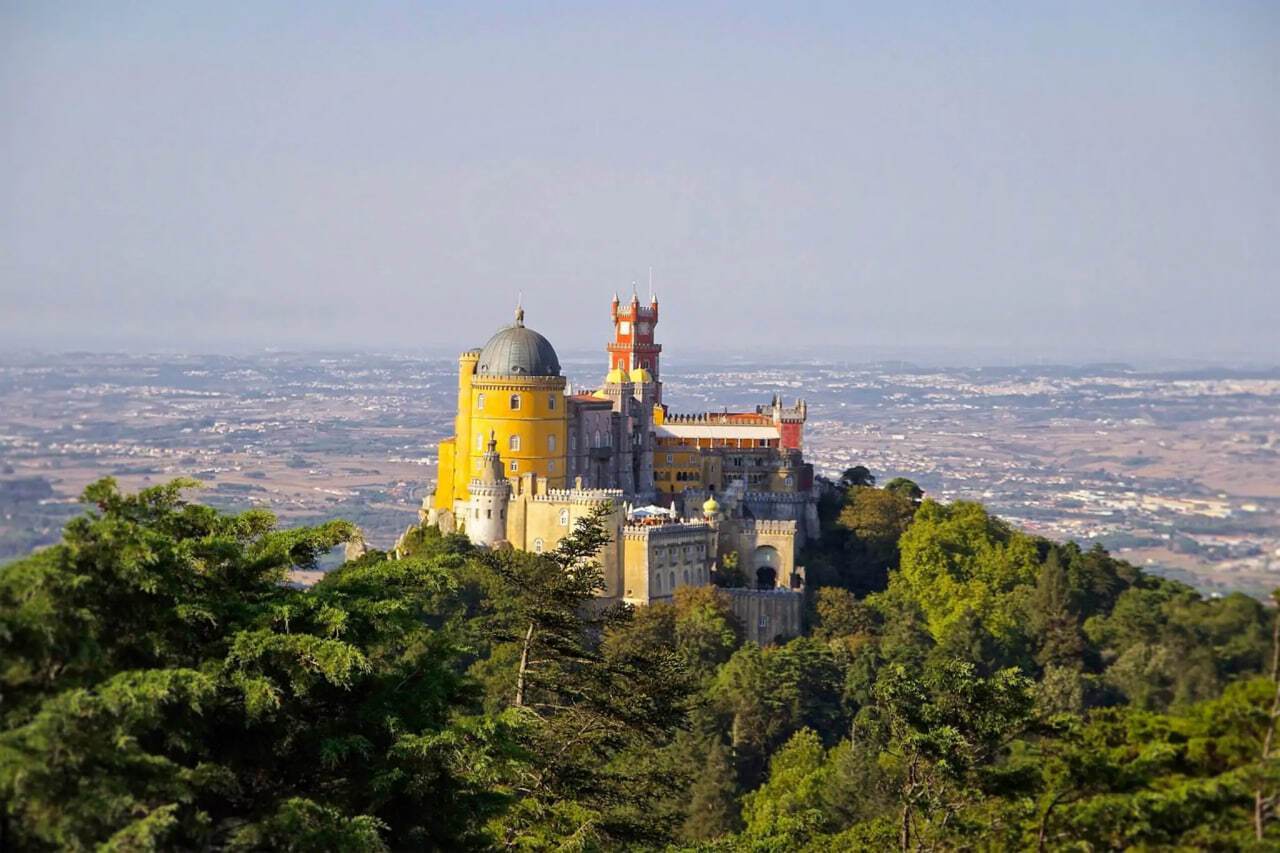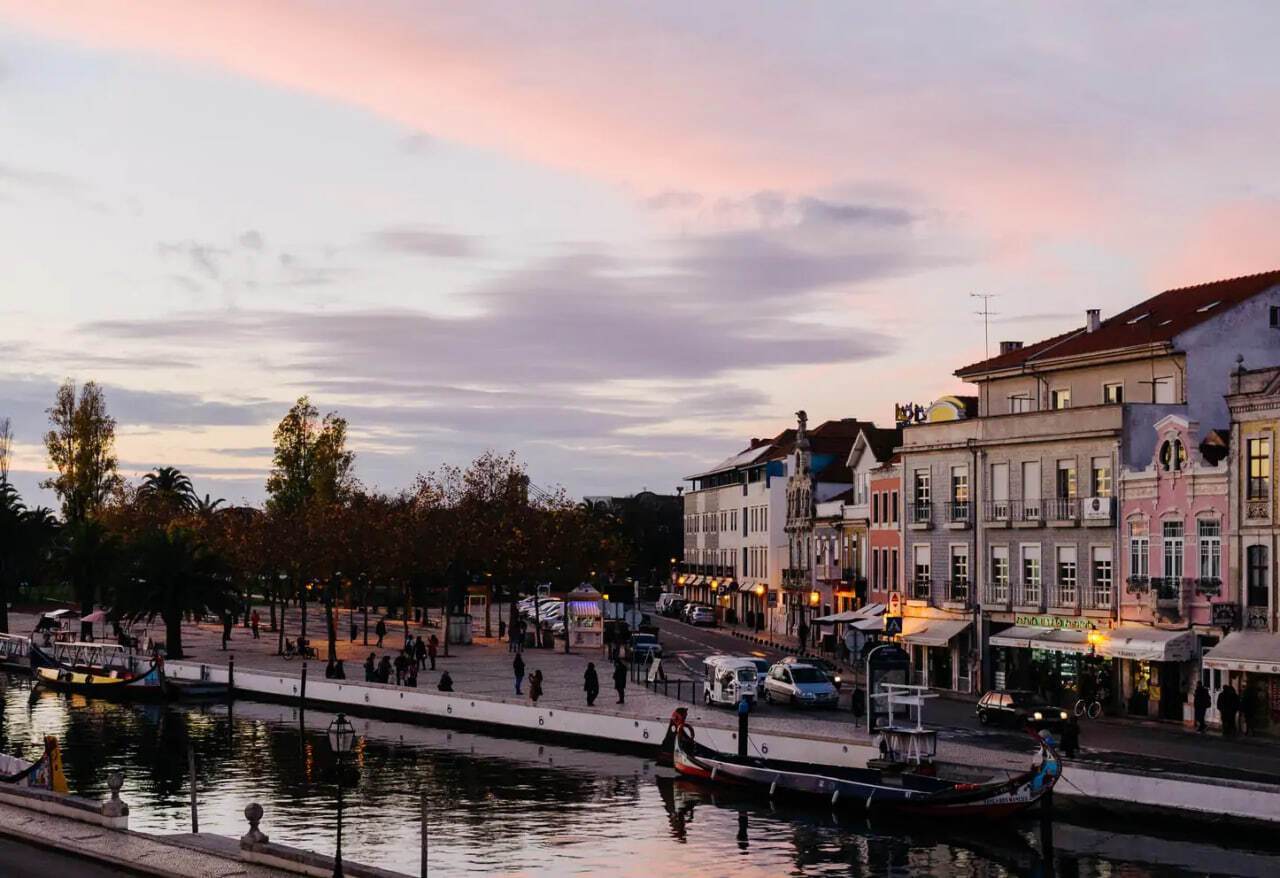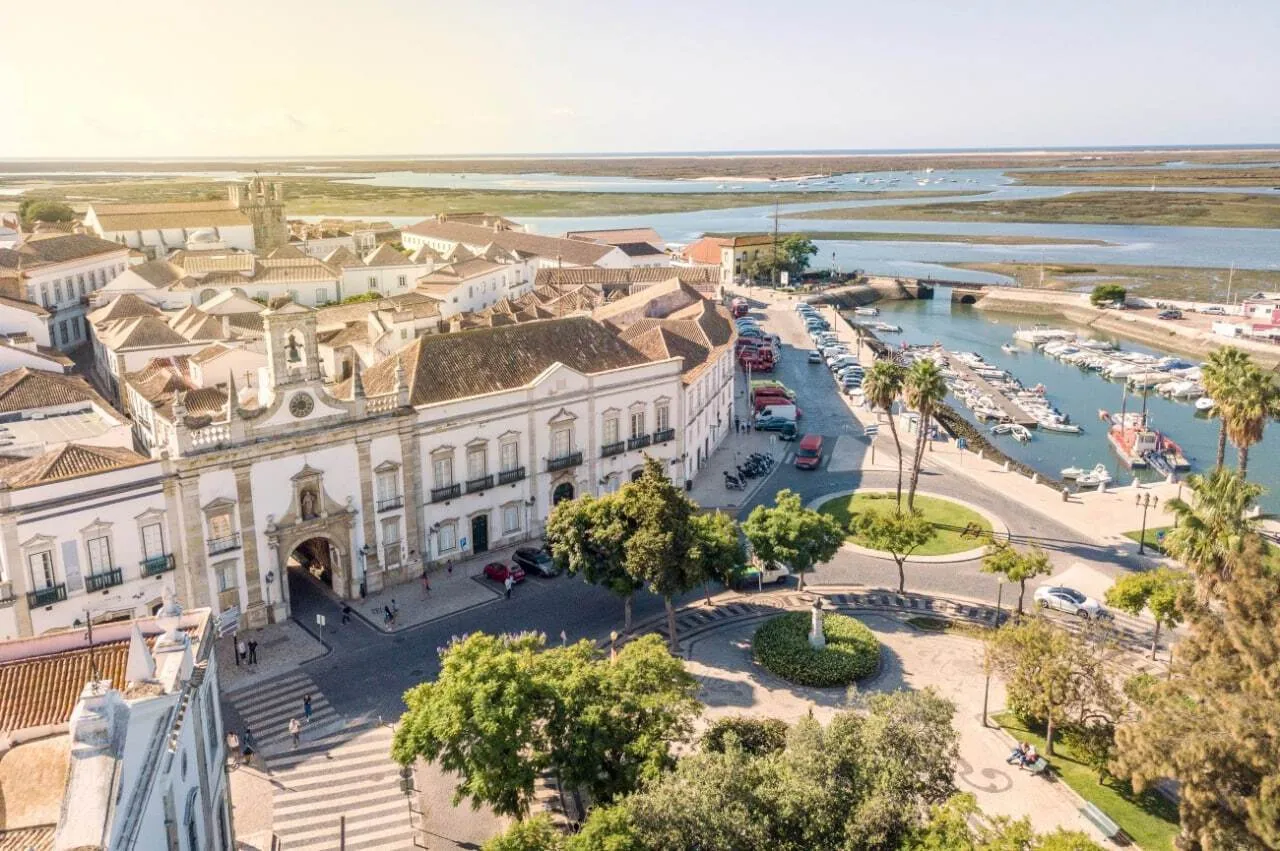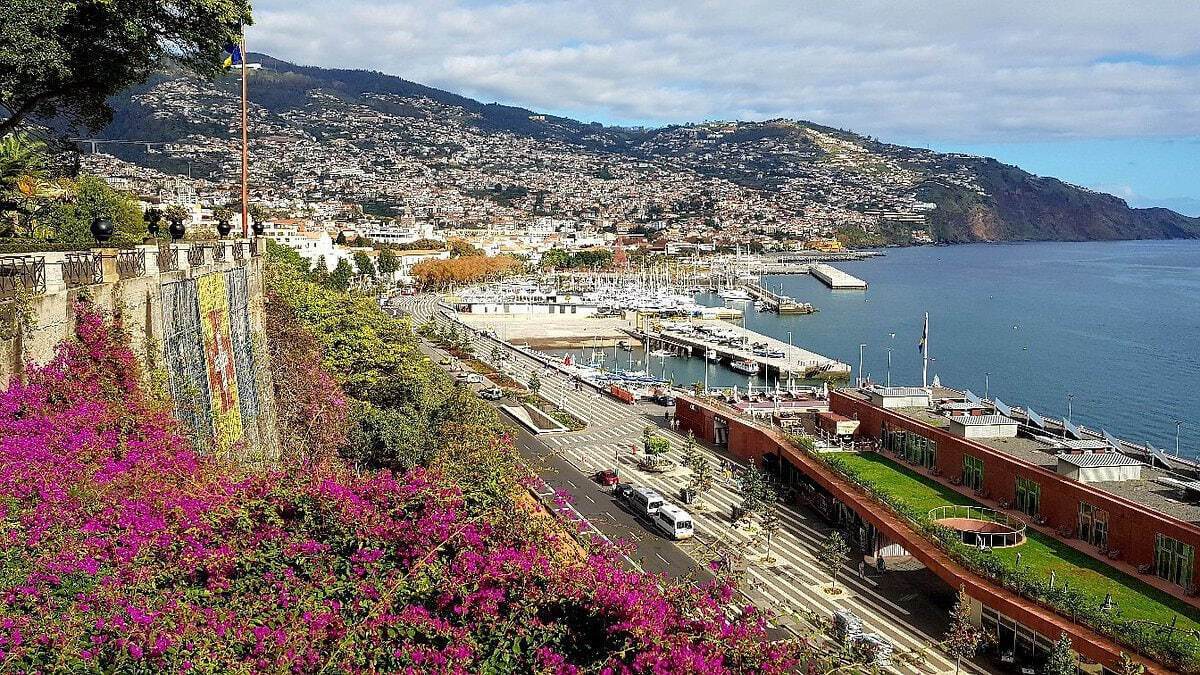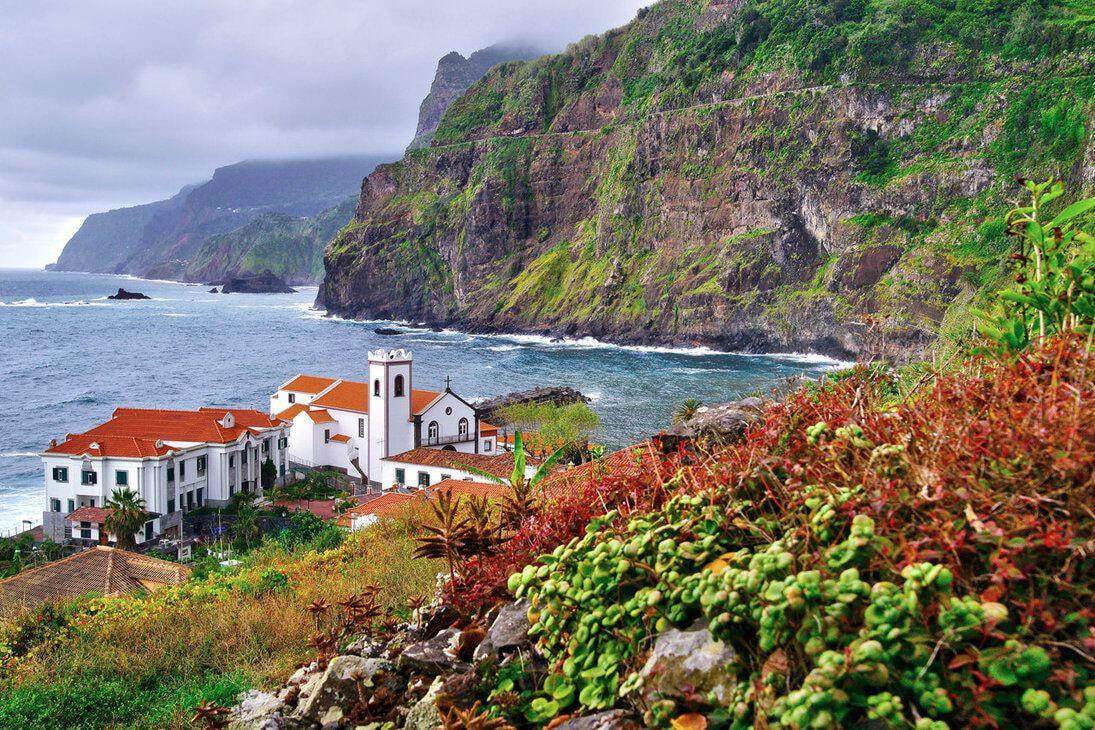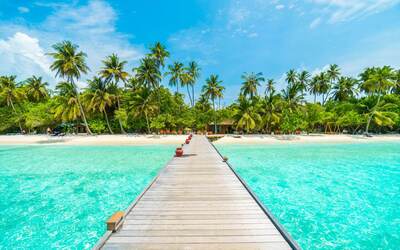Over the past decade, few travel guides showcasing the world's most scenic spots have omitted the breathtaking views of Lisbon or Cascais, the nature of Sintra, or the charming beaches of Lagos. The country is becoming increasingly popular among those seeking comfortable living, thanks to its mild climate, high safety levels, and excellent quality of life. The choice of where to live largely depends on your ideals and priorities. With this in mind, Portugal offers several standout locations worth knowing about.
We have compiled a list of the top ten places for expats to live in Portugal in 2024, based on various studies and personal experiences.
Comfort, Safety, and Opportunities for Expats
Portugal continues to demonstrate active economic growth, with local authorities working hard to create innovative infrastructure and favorable conditions for doing business. The country attracts Ukrainian startups and IT specialists seeking new opportunities after the crisis. This comes as no surprise: since 2016, Portugal has hosted WebSummit and the Solana conference, bringing together progressive members of the global tech community.
Portugal’s climate is recognized as one of the best in the world, and its healthcare system is highly advanced, meeting modern standards. Local residents speak English fluently, making it easier for newcomers to adapt. It’s a family-friendly country, and many quickly feel at home here.
In 2024, Portugal once again ranked in the top 5 countries for expats, according to the InterNations report, which evaluates quality of life, job opportunities, and overall satisfaction of foreign residents. Portugal also continues to be regarded as one of the safest countries in the world, making it an attractive destination for expats and tourists alike.
But where is the best place to live in Portugal? In the next section, we will highlight ten cities that are ideal for living and working.
Best Cities to Live in Portugal
Lisbon: The Cultural Heart of Portugal
Lisbon is a cosmopolitan city, ideal for those who appreciate culture and an active lifestyle in the capital of continental Europe. Unlike other European capitals, it has a more relaxed atmosphere with a less pronounced “capitalist” vibe, making it an attractive place for retirement.
The city combines well-developed infrastructure with a rich cultural life and the charm of an ancient town. The cost of living in Lisbon is lower than in most European capitals. For example, renting a furnished 85 m² apartment in an average neighborhood costs around €1,500 per month. In Lisbon and its surrounding areas, there are over 30 international schools, with annual tuition fees ranging from €5,000 to €20,000.
Lisbon is also an excellent base for those awaiting a residency permit through investment or who have just relocated to Portugal. Expats quickly adapt to the local culture. The international airport, located just 10 minutes from the city center, offers direct flights to Miami, London, Dubai, New York, Toronto, and nearly all capitals in Europe and Latin America, making travel easier compared to southern Portugal or Porto, where layovers are often required.
Lisbon is a walkable city and is considered one of the safest cities in the world. The popular expat neighborhood of Parque das Nações (Expo) is just five minutes from the airport, offering modern infrastructure, shopping centers, plenty of greenery, and comfortable walking areas. The Cambridge International School and Altice Arena, where major events are held, are located here.
Lisbon combines all the essentials for a comfortable life while offering unique opportunities for personal and professional growth.
Pros and Cons of Living in Lisbon
| Pros | Cons |
|---|---|
Cultural center | Noise and crowds |
Diverse leisure opportunities | Higher cost of living |
Well-developed public transport network | Traffic issues |
Great weather | Abandoned buildings |
Convenient logistics | Overloaded central bridge |
Wide range of real estate and investment opportunities | Narrow sidewalks with slippery cobblestones |
Porto: A Cozy City for Living and Growth
Did you know that Portugal got its name from its second-largest city, Porto? The Latin name for this city, Portus Cale, became the foundation for the country’s name. Porto is the perfect place for those who value the socio-cultural aspects of life.
In 2024, Porto ranked 10th in Time Out magazine's list of the best cities in the world and was recognized as the second easiest place globally to make friends. The city is famous for its medieval and Gothic architecture, with picturesque bridges and rooftops offering breathtaking views of the Douro River. The beaches are closer to Porto than to Lisbon, with the nearest beach, Foz do Douro, just a 10-minute bus ride from the city center.
If you appreciate wine and gastronomy, seek a mild climate with warm, sunny summers, and enjoy historic city centers without the harsh southern sun, Porto is your choice. The summer months in Porto are comfortable, dry, and mostly clear, while winters are cold and wet. In January, the coldest month, temperatures range from +6°C to +14°C, and on the coldest nights, they can drop to 0.5°C.
Porto is the fourth-largest city in Portugal, with a population of over 25,000 people. Like Lisbon, it is known for its high level of safety. The city is also a commercial hub, attracting many digital nomads, startups, and international companies such as Teleperformance, SITEL, and PWC. There are also many coworking spaces for freelancers, with prices ranging from €50 to €100 per month.
Compared to Lisbon, life in Porto is simpler and more affordable. Despite rising living costs, Porto remains a more budget-friendly option. One-bedroom apartments start at €500, and three-bedroom apartments from €1,500.
When buying real estate, you can purchase a studio in a prestigious area for as little as €150,000, or find a small house or apartment for a family for less than €100,000 in the suburbs.
Porto offers a comfortable lifestyle and unique opportunities for personal and professional growth.
The pros and cons of living in Porto
| Pros | Cons |
|---|---|
Easy to get around the city | Winter months can be cold |
Well-developed network of coworking spaces | City center is crowded with tourists |
More affordable prices compared to Lisbon | No option for obtaining a residency permit through investment in residential real estate |
High-quality gastronomy | Disconnected transportation infrastructure |
Active cultural life | Abandoned buildings |
Cascais: The Perfect Place to Live by the Sea
Cascais is an attractive choice for those who want to stay close to Lisbon but prefer to live near the beaches. The city is located just 30 km from the capital and borders towns like Sintra and Oeiras, as well as being close to the majestic Sintra-Cascais National Park.
Cascais is one of the safest places in Portugal. You don’t have to worry about leaving your phone in the car or an unlocked house. There’s a good chance that even a lost wallet will be returned with all the cash inside. You can even meet the president on Cascais beach without security
Anatoliy Letaev, Founder of Migronis
According to statistics, Cascais enjoys around 300 sunny days a year. Winter temperatures rarely drop below 10 degrees Celsius, and nighttime temperatures range from 5 to 13 degrees, making the climate comfortable and dry compared to Asian countries.
The city offers a wide range of amenities: beaches, gyms, office spaces, and hypermarkets, making trips to Lisbon unnecessary. Cascais is popular among families due to its excellent selection of international schools, recognized as some of the best in Portugal, and its broad opportunities for outdoor activities. You’ll find numerous bike paths, tennis courts, and gyms with ocean views, as well as surf schools and kite clubs.
The journey from Cascais to the airport takes just 30-40 minutes, providing convenient access to international flights.
The city also actively supports investors, especially in the smart cities sector. The residents of Cascais are mostly business people, which creates excellent networking opportunities.
In 2024, the cost of living in Cascais is high compared to other regions of Portugal. Renting a one-bedroom apartment in the center ranges from €1,060 to €2,000, while outside the center it’s between €750 and €800. Utility bills average around €130 per month, and a public transport pass costs about €40. Monthly grocery expenses for one person are approximately €200, with entertainment and dining out adding another €200. In total, a comfortable life for one person would require a minimum of €1,630 per month, while for a family of four, around €3,600. These amounts may vary depending on lifestyle.
Cascais is also popular among celebrities, with famous figures like footballer Cristiano Ronaldo, Formula 1 president Bernie Ecclestone, and actor Johnny Depp owning property here.
The pros and cons of living in Cascais
| Pros | Cons |
|---|---|
Direct proximity to the ocean | High cost of living |
Developed network of international schools | Limited employment opportunities |
Close to the airport | Overcrowding with tourists |
Developed infrastructure | High real estate prices |
Braga: An Attractive and Budget-Friendly City for Living
If you are looking for an affordable place to live in Portugal, Braga is an excellent choice. This is one of the oldest cities in the country, renowned for its vibrant nightlife and rich historical heritage, including one of the oldest cathedrals in Portugal.
The cost of renting housing in Braga is 72% lower than in Lisbon: you can rent a two-bedroom apartment in the city center for just €900. Purchasing real estate will cost between €950 and €1,425 per square meter, depending on the location.
The city boasts a convenient location — just 30 minutes from the beach, 15 minutes from the mountains, and 40 minutes from the border with Spain. Braga is becoming increasingly popular among expatriates, especially digital nomads, thanks to the presence of many tech and IT companies, such as Webhelp and Farfetch.
Braga is also home to the well-known University of Minho, which was ranked among the top 400 educational institutions in the world by The Times in 2012. The innovative Startup Braga center, in partnership with Microsoft Ventures, actively supports the launch and development of promising business projects.
Braga has been recognized as one of the best cities in the world for retirement and one of the happiest cities in Europe.
Pros and Cons of Living in Braga
| Pros | Cons |
|---|---|
Charming streets and cozy cafes | Small city size |
Affordable cost of living | Slow pace of life |
Developing IT community | Limited number of international schools |
Active nightlife |
Coimbra: A University City with a Rich History and Affordable Living
Coimbra, often compared to the Portuguese Oxford, is home to the oldest university in the country, founded in 1290. This city is a harmonious blend of ancient architecture and a modern atmosphere, where medieval churches coexist with chill-out bars.
Once the first capital of Portugal, Coimbra is now a calm university town with a moderate cost of living, especially compared to Lisbon and Porto. The city is well-connected to other regions of the country by rail and is only two hours away from Lisbon, allowing residents to visit the capital regularly. However, there is no particular need for this, as Coimbra also hosts a variety of cultural and educational events.
With a population of around 143,000, foreigners make up 4.6% of the total number of residents, with the largest groups coming from Brazil, Ukraine, and Romania. Coimbra offers a unique blend of cultural traditions and modern lifestyle, making it an attractive place for living and studying.
In 2024, the rent for a studio apartment in the center of Coimbra averages from €500 per month, while prices for a one-bedroom apartment start at €650, depending on location and condition. In Lisbon, similar housing costs almost twice as much—around €830. Regarding property purchase, the average price per square meter in the central part of Coimbra reaches €2,199, while in the surrounding areas, it is approximately €1,433. This data reflects current trends in the rental and property sales market in Portugal.
Coimbra is not only an attractive city to live in Portugal but also one of the top five municipalities in the country for doing business. It hosts the IPN business incubator, which is ranked among the top 10 university business incubators in the world.
Emigrants with the right to teach English can find work in international language schools in Coimbra, such as:
- British Council
- Cambridge School (website is in Portuguese)
- Wall Street English (website is in Portuguese)
- International House
The climate in Coimbra is mild and slightly cooler than in Lisbon. Summers are warm, with average temperatures of +28°C during the day and +16°C at night. In the winter months, temperatures rarely drop below 0°C, averaging around +7°C during the day, but this period sees a lot of precipitation.
Pros and Cons of Living in Coimbra
| Pros | Cons |
|---|---|
Quiet and peaceful atmosphere | Lack of ocean and beaches |
Vibrant nightlife and cultural scene | Unpredictable weather |
Low cost of living compared to other regions | Location is far from the airport |
Good transport connections to Lisbon, Porto, and other cities in central Portugal | Limited job opportunities |
Sintra: A Unique Blend of Culture and Nature
Sintra is a city that boasts a rich cultural heritage and stunning natural beauty. Castles, forests, towers, caves, and beaches are just minutes apart, creating a unique atmosphere.
With a population of about 400,000, the municipality of Sintra mainly occupies the territory of a national park, which features numerous cycling paths and hiking routes. It is also home to the westernmost point of Europe—Cabo da Roca.
The city of Sintra is located only 15-20 minutes from downtown Lisbon and 10-15 minutes from the nearest beaches. Sintra has several international schools, including TASIS, as well as golf courses.
Here, a special microclimate forms: while Lisbon enjoys sunny weather and temperatures reaching +25 degrees Celsius, Sintra may only be +17, cloudy, and rainy. In the summer, the temperature difference can range from 4 to 7 degrees, while in winter, nighttime temperatures can drop to +2 degrees. Nevertheless, the region is characterized by its magnificent greenery due to the increased humidity.
However, it is worth noting that Sintra's infrastructure is underdeveloped. To reach the nearest restaurant, one must drive 5-10 minutes. Among Sintra's advantages are the wild beaches of Ursa and Adraga, as well as Praia de Maçãs, which features a river with a temperature significantly higher than the ocean, making it suitable for children's bathing. In the summer, a historic tram runs from Sintra to the ocean.
In addition to the old town, several nearby villages, such as Belas, Beloura, and Pena Longa, can be considered for living. In these villages, eco-friendly products are grown and can be purchased at local markets, where fishermen bring fresh fish and seafood.
If you're contemplating which city in Portugal is best to live in, Sintra is an excellent choice. The city is suitable for those seeking peace and solitude. However, more active families may want to consider other options.
Pros and Cons of Living in Sintra
| Pros | Cons |
|---|---|
Beautiful nature | Underdeveloped infrastructure |
Unique architecture | Cooler climate compared to other regions |
Presence of international schools | |
Access to eco-friendly products |
Aveiro: The Portuguese Venice
The city of Aveiro, known for its intricate network of canals, rightfully earns the nickname “The Portuguese Venice.” It is the second most populous city in the central region of Portugal, after Coimbra.
One of the key features of Aveiro is its flat terrain and predominantly pedestrian infrastructure, making it accessible for people with mobility challenges.
The city is located on the coast, ensuring a stable yet mild climate. The average temperature in Aveiro ranges from 5 to 25 degrees Celsius, making it attractive for those looking to avoid the high temperatures typical of southern Portugal.
Real estate in Aveiro is affordable compared to other cities, and reasonable prices for food and drinks make it an appealing place to live. In 2024, the cost of living for an expat in Aveiro is around 1,070 euros per month. This includes rent, utilities, transportation, and food expenses. Renting a one-bedroom apartment in the city center costs approximately 800 euros, while utilities are about 130 euros per month. Weekly grocery expenses average around 45 euros.
For those who lead a more active lifestyle and enjoy dining out and entertainment, it is advisable to budget around 160 euros per month for leisure activities. The cost of living can vary based on lifestyle and preferences.
Despite being a small city, the level of English proficiency here is lower than in larger cities; however, the quality of life remains high. The tranquil lifestyle and comfortable environment attract many retirees choosing Aveiro as their place of residence.
Pros and Cons of Living in Aveiro
| Pros | Cons |
|---|---|
High level of safety | Further from the coast |
Close to the city of Porto | Less English spoken |
Affordable prices | Fewer job opportunities |
Faro: The Capital of the Algarve
According to Forbes and CNN, Faro has been recognized as one of the best places to retire. The city offers a calm atmosphere, significantly different from the more tourist-heavy western regions of the Algarve. It features an international airport and a well-developed urban infrastructure, including modern shopping centers and multi-story residential buildings, giving Faro the feel of a large city.
Faro is also a university city, making it lively and active year-round, especially during the academic semesters. Life here does not come to a halt even in the off-season, as often happens in tourist towns. The city center, like most historical towns, is compact, allowing residents and visitors to have everything they need within walking distance.
The beach area of Faro is represented by Praia de Faro, a 5-kilometer stretch of sandy beach. It is easily accessible, with boats and buses running from the city center. This beach remains relatively unknown to the average foreign tourist, allowing for solitude and natural beauty. The city is also famous for its historical heritage, and just outside its door lies the Ria Formosa Nature Reserve.
Pros and cons of living in Faro
| Pros | Cons |
|---|---|
Well-developed infrastructure | Small-sized city |
Convenient travel options | Limited international community |
Beautiful beaches near the city | Becomes touristy overcrowded in summer |
Warm and mild climate |
Where Else to Live in Portugal?
Funchal: Capital of Madeira
The autonomous regions of Madeira and the Azores provide an exceptional opportunity to obtain a residence permit in Portugal by investing in real estate.
Funchal is the main city of the Madeira region and an important cultural, historical, and economic center. It offers modern infrastructure, comfortable housing, and a developed tourism industry. The city combines historical heritage with modern amenities and is known for its botanical gardens, wineries, and famous festivals such as the annual Flower Festival.
Madeira is renowned for its mild subtropical weather, attracting tourists year-round. Due to its geographical location, the island boasts stunning nature with diverse landscapes, from rocky coastlines to lush forests and mountains. The quiet and serene island life makes this region especially popular among those seeking a balance between work and relaxation in comfortable conditions.
Madeira is becoming one of the most attractive destinations for obtaining a residence permit through investment. The island offers favorable conditions thanks to a special tax regime, a lower cost of living compared to Lisbon, Porto, and the Algarve, and a pleasant mild climate, with temperatures ranging from +25°C in summer to +17°C in winter. For the convenience of remote workers, a Digital Nomads Village (Digital Nomads Madeira) has been established on the island, making Madeira an ideal place for those seeking comfort and stability amidst natural beauty.
Expats are drawn to Madeira for its unique nature and favorable living and working conditions. The island offers high-speed internet, a well-developed transportation infrastructure, and convenient air connections to Europe. Direct flights from Cristiano Ronaldo International Airport link Madeira with London, Frankfurt, Amsterdam, Helsinki, Prague, and Madrid, while international routes are accessible through Lisbon.
The island is known not only for its picturesque coastal landscapes and excellent cuisine but also for world-class golf courses, renowned gardens, and parks. International schools, such as the International Sharing School and the International School of Madeira, make Madeira attractive for families with children.
The capital, Funchal, is the center of business activity, and real estate in Madeira remains in demand for obtaining a “Golden Visa.”
Pros and cons of living in Madeira
| Pros | Cons |
|---|---|
High level of safety | Limited job opportunities |
Presence of international schools | Sense of isolation due to island location |
Ideal for family living | Dependence on imported goods and products |
Favorable conditions for freelancers | |
Picturesque natural surroundings | |
Opportunity to obtain residence permit through real estate investment |
Ponta Delgada: Azores Islands
The Azores Islands are the second-largest autonomous region of Portugal, consisting of nine picturesque islands located nearly 1,400 kilometers from Lisbon. Due to their remoteness, the Azores are considered a safe place to live compared to other regions in Europe.
Ponta Delgada is the largest city and administrative center of the Azores, located on the island of São Miguel, which, along with Terceira, is the most popular among emigrants. The city combines historical heritage with modern infrastructure. The architecture of Ponta Delgada reflects colonial influences, with many old buildings, churches, and museums that tell the rich history of the region. At the same time, there is developed modern infrastructure, including a university, ports, and an international airport, making Ponta Delgada an important transport and cultural center of the Azores.
The Azores offer numerous advantages: clean air, no traffic jams, low population density, and affordable prices for goods and real estate. Housing prices here are significantly lower than in Lisbon—about three times less. For example, the cost of houses that do not require major repairs starts at €60,000. More modern housing is available in the price range of €200,000 to €250,000, featuring homes with better conditions and larger spaces. Luxury properties are more expensive: a modern three-bedroom villa on São Miguel Island is priced at €1,250,000. Everyday shopping is also cheaper, as the value-added tax (VAT) in the Azores is 18%, while it is 23% in mainland Portugal.
Thanks to the Gulf Stream, the climate in the Azores is very mild and comfortable, with temperatures ranging from 16 to 25 degrees Celsius throughout the year. The Azores are considered one of the most beautiful places to live, both in Portugal and worldwide.
The Azores Islands offer a variety of programs for business development, and the VAT rate here is the lowest in all of Portugal. This makes the region attractive not only for living but also for doing business.
Pros and Cons of Living in the Azores Islands
| Pros | Cons |
|---|---|
Quality of air and water | Island life may not suit everyone |
Stunning nature | Fewer job opportunities |
Low taxes | Unreliable public transportation |
Safety |


